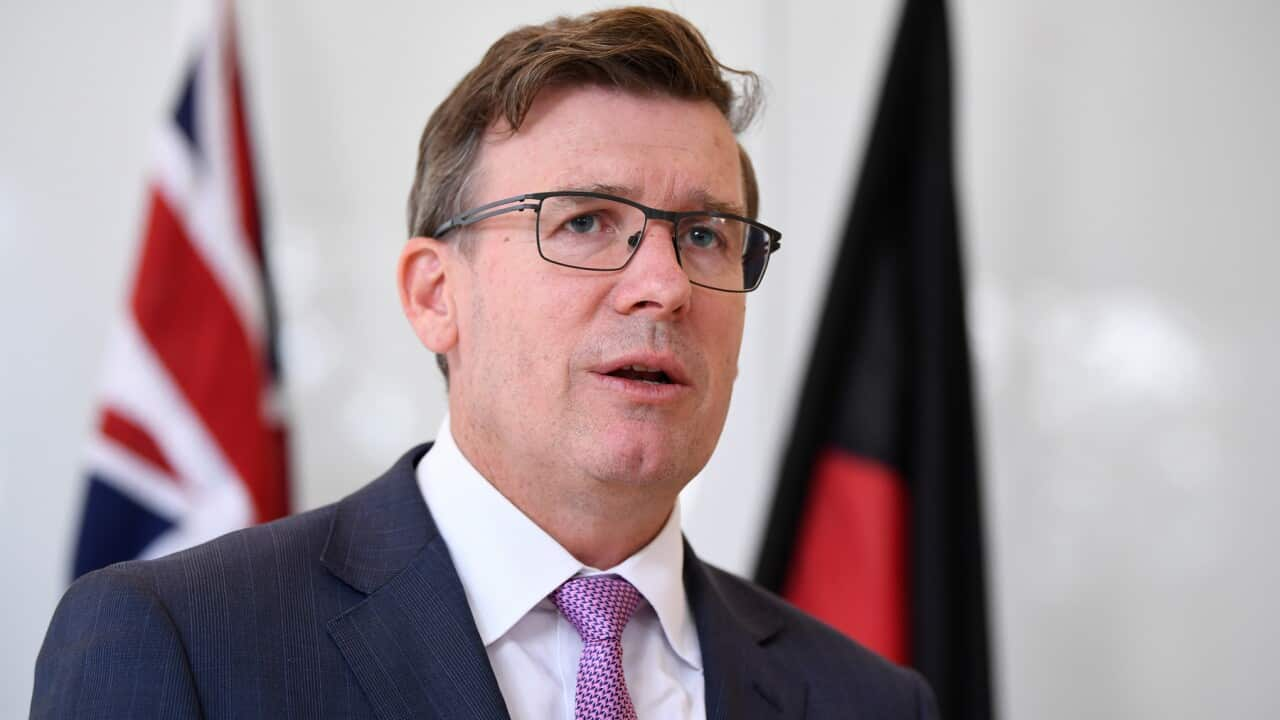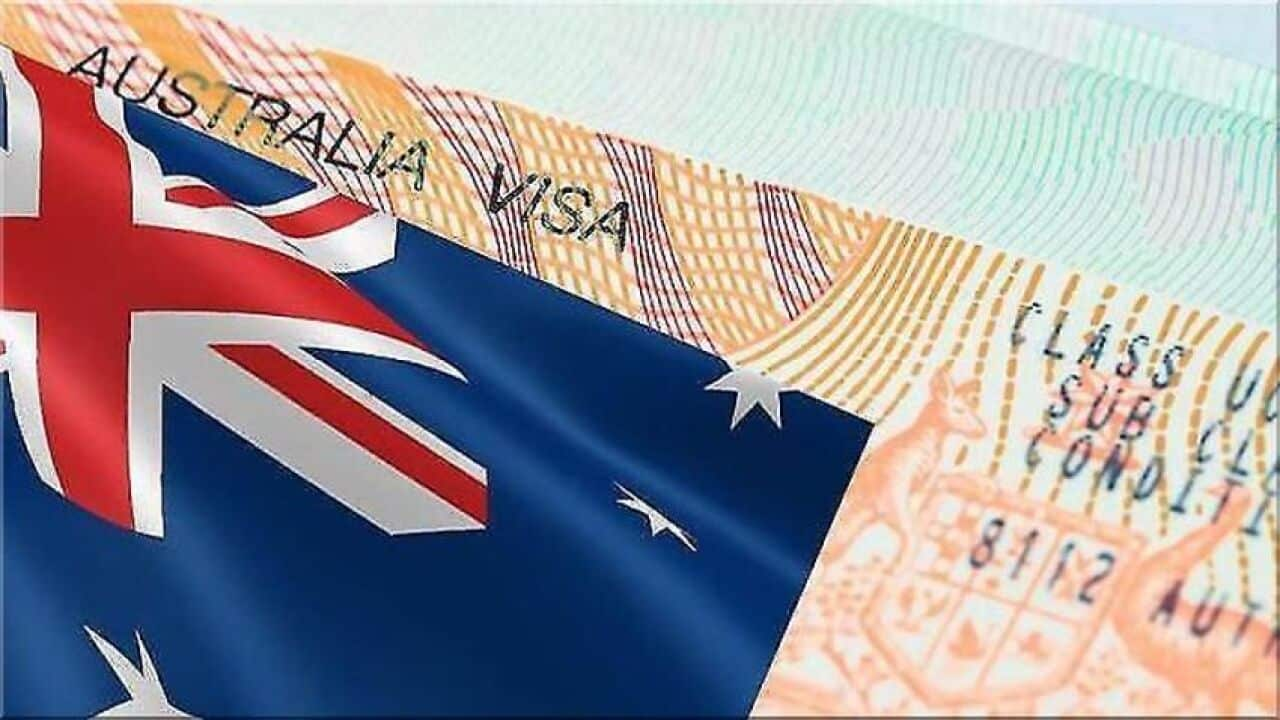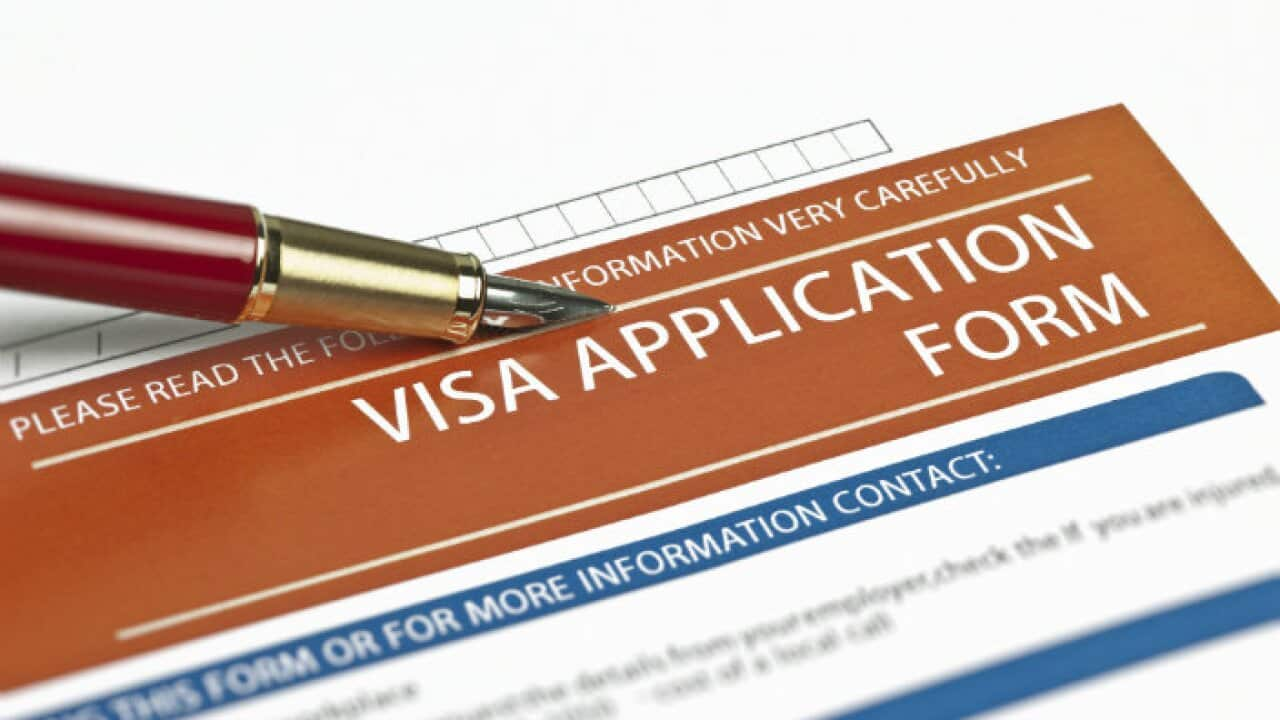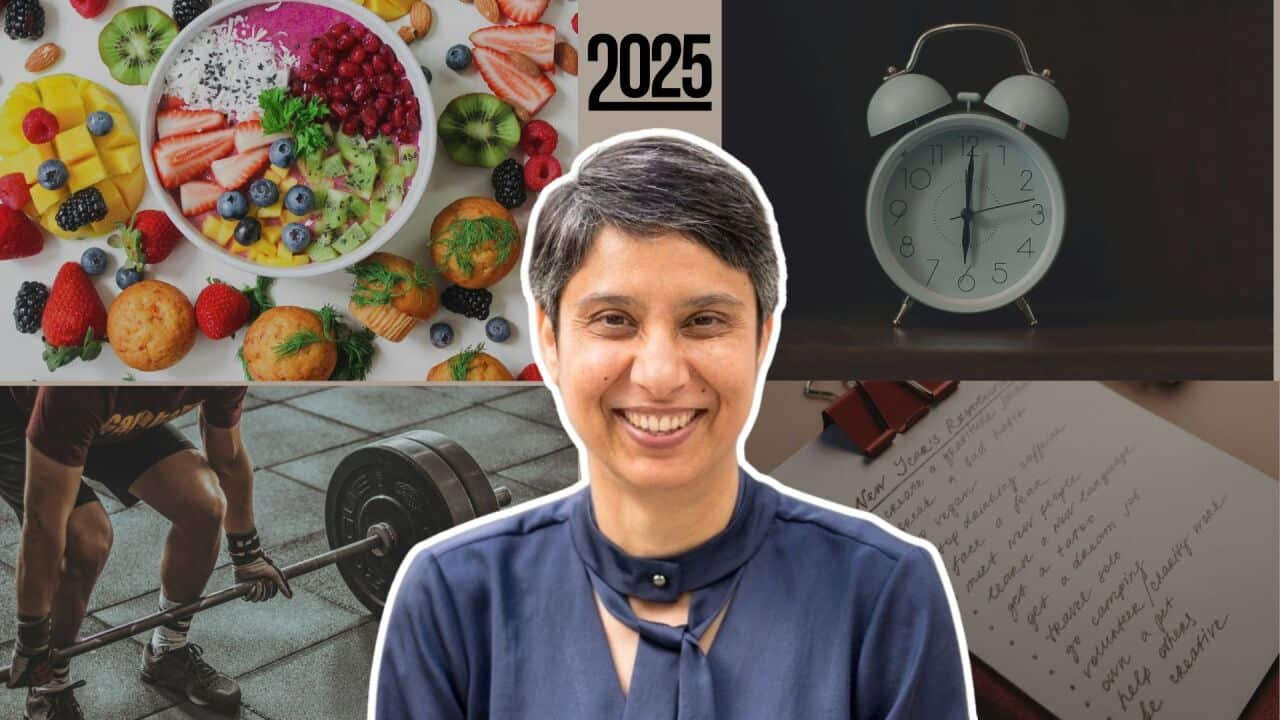Highlights
- Minister Tudge thanks Indian immigrants for their contribution to Australia
- Border restrictions pose "greater uncertainty" for Indians stuck in Australia, says Minister Tudge
- "We will be looking for immigration to resume when it is safe to do so"
The coronavirus pandemic has spawned uncertainty in the best of cases, but more so for the 2.2 million temporary visa holders in the country, who have been thrown into chaos by global travel bans and border closures.
A large number of these visa holders are from India, many of whom are now finding themselves in a precarious situation, where Australia is asking them to go home, but their own country isn't yet ready to evacuate them.
Addressing their concerns, in an exclusive interview with SBS Punjabi, Immigration Minister Alan Tudge said he understands its a matter of "greater uncertainty" for those Indian nationals who are anxious to return home.
"We understand that the international airports in India are closed until next week and then and a further decision will be made by Prime Minister (Narendra) Modi whether to extend them again or reopen them," said Mr Tudge.
He added that the situation in India is, however, different from that in Australia.
In Australia, we are not allowing foreign nationals to come into the country, we are only allowing Australians and permanent residents, unless there are exceptional circumstances, whereas India is not even allowing Indian nationals to return to their country

Acting Minister for Immigration Alan Tudge. Source: SBS
For most temporary visa holders, the problem is not just limited to being unable to return to their countries of origin, it is also a financial one. Many of them have lost their jobs due to the pandemic and are now having to survive the crisis without any income assistance from the federal government.
Addressing the concerns of visa holders, Minister Tudge said while the country recognises their importance to its economy and society, however, with Australian citizens and residents being the priority, many will have to reevaluate their options.
"Firstly, all the efforts with the welfare payments and the JobKeeper payments are very much focused on Australians and permanent residents here. If you're here on a temporary visa and you do run out of money then we do encourage people to return home where you may be able to get support," he said.

Indian hospitality student Gurpreet Singh has lost his job due to the pandemic. Source: Supplied
It is difficult for Indian nationals at the moment because the international airports are closed, but our expectations and maybe the expectations of Prime Minister Modi is that they will be opened again in the not so distant future
'Immigration will resume when it will be safe to do so'
Mr Tudge said the government is yet to take a decision on when it would open its borders to anyone other than the Australian citizens and permanent residents.
"Two things have to occur for that to happen. First is the international airports in India have to open up which is a decision of the Indian government and then second, we would have to open our borders to foreign nationals and we haven’t made that decision yet," he said.
The minister thanked the Indian immigrants for their "terrific" contribution to Australia's immigration success.
"I think it will be some time yet before we reopen the borders but it’s is something that we’d like to do in the future because immigration has been such a critical part of Australia’s success.
"And particularly immigrants from India in the last decades who have come in very large numbers and made a terrific contribution in Australia and we will be looking for immigration to resume when it is safe to do so," he said. Minister Tudge said a lot of Australia's success in stemming the coronavirus has come through government's move to close the international borders. He said a decision to reopen would largely depend on the development of a vaccine.
Minister Tudge said a lot of Australia's success in stemming the coronavirus has come through government's move to close the international borders. He said a decision to reopen would largely depend on the development of a vaccine.

Stranded Australian travellers are seen arriving at Melbourne International Airport, in Melbourne, Friday, April 10, 2020. Source: AAP
"How quickly we will rebound, it’s just too early to say and if there’s a vaccine which is found and that’s globally available then we may be able to open-up those borders sooner rather than later and get back to what the normal situation is. But if the vaccine is not found for some time, then it will probably be a slower process," said the minister.
'Immigration rate will be low'
Mr Tudge said it is too early to ascertain the long term impact of the health crisis on the country's immigration policies, but added that the numbers would certainly be low as compared to the previous years.
"It’s just too early to say at this stage obviously our immigration rate will be lower this year compared to previous years because we have closed down the borders and almost nobody is coming in at the moment," he said.
COVID-19 impact on visa applications:
The minister said while the processing of onshore applications has not been largely affected, those lodging visa applications from outside the country are more likely to feel the pinch.
"If you’re overseas and you’re applying for a visa, then I can say that it is being interrupted because of coronavirus, often because things like the English language testing providers or the health testing providers in most destination countries are shut down."
He, however, added that the situation would be "irrelevant" for applicants from India as they would not be able to enter the country, even if they had a valid visa until the restrictions are lifted.
"At the moment that situation is almost irrelevant, because even if you had a valid visa and if you were in somewhere like India or Nepal then you would not be able to come into the country in any case.
"Again, we are keeping a close eye on things we are continuing to process those in Australia we are processing some overseas, but it obviously is at a slower rate," said the minister.
Click on the player above to listen to the full interview.
Coronavirus symptoms can range from mild illness to pneumonia, according to the Federal Government's website. Symptoms can include a fever, coughing, sore throat, fatigue and shortness of breath.
If you develop symptoms within 14 days of returning from overseas, you should call to seek medical attention.
If you don’t have symptoms but you have been in contact with a confirmed COVID-19 case, you should also call to seek medical attention.
If you believe you may need to get tested, call your doctor, don’t visit. Or contact the national Coronavirus Health Information Hotline on 1800 020 080.
If you are struggling to breathe or experiencing a medical emergency, call 000.









